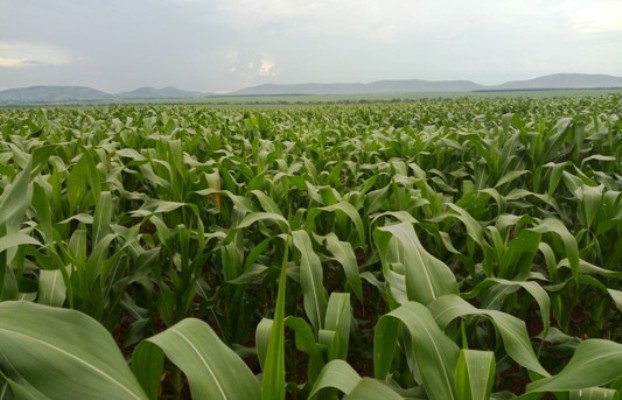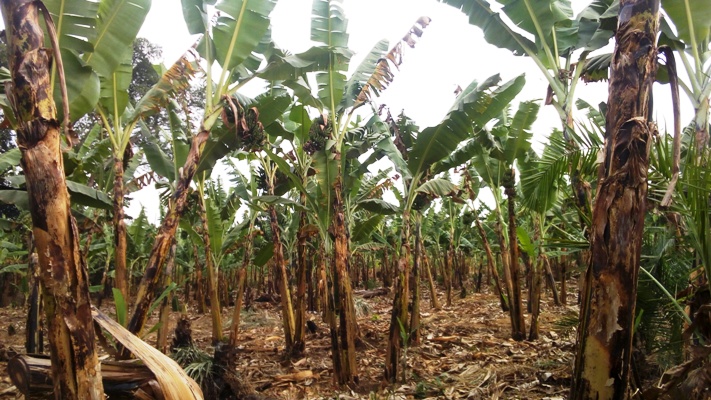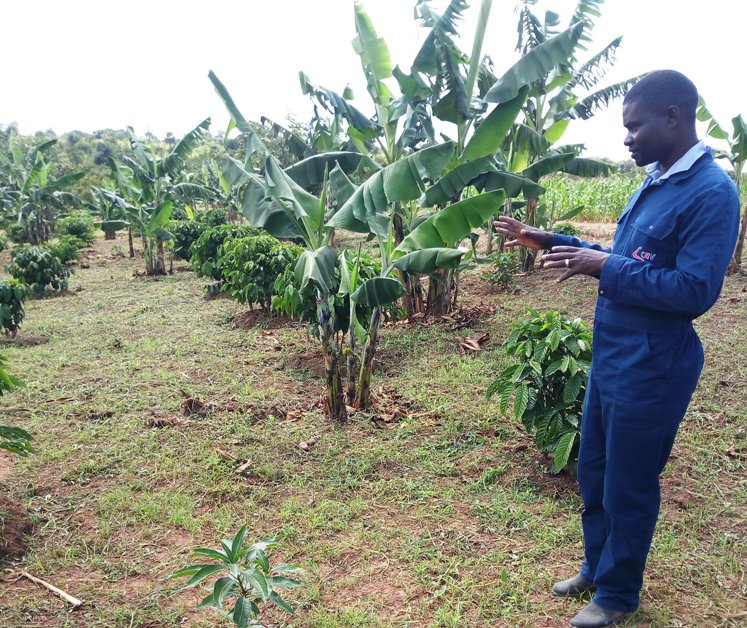Climate-friendly practices can increase yields while improving ecosystem of farms, scientists say
Farmers could continue to produce high crop yields with far less use of artificial fertilisers if they adopted environmentally sustainable practices, an academic study has shown for the first time.
Techniques such as adding manure and compost to soils, growing nitrogen-fixing plants between crops, and cultivating a wide range of produce instead of sticking to the same crops, can all increase yields while protecting and improving the natural ecosystems of farms.
Adopting these practices would be enough to replace a substantial proportion of chemical fertiliser, the price of which has soared owing to high fuel prices and the war in Ukraine, the study found.
Chloe MacLaren, a plant ecologist at Rothamsted Research in the UK who is the lead author of the paper published on Monday in the peer review journal Nature Sustainability, said: “Reducing reliance on chemical fertilisers would help to buffer farmers and consumers against economic shocks, such as the current spike in fertiliser costs and consequent increase in food prices. Widespread uptake of these practices could also contribute to a more equitable global distribution of fertiliser.”
In the study, scientists analysed 30 long-running experiments on farms in Europe and Africa to assess how natural farming methods could improve yields.
They found that using sustainable farming techniques did not increase yields when used on top of high applications of fertiliser, on the scale normally used in farming, but produced the greatest yields when practised with the addition of some nitrogen to soils.
Each of the experiments analysed was running for more than nine years and all together the study covered data from more than 25,000 harvests of six crops: wheat, maize, oat, barley, sugar beet and potatoes. Following experiments over many years was essential, according to the researchers, as shorter periods can produce wayward results in particularly good or bad years.
Adding animal manure to the soil was found to boost yields more than plant-based compost or cuttings, while growing a range of crops helped to suppress weeds and diseases. Growing legumes such as beans and clover adds nitrogen to the soil, improving its fertility.
Fertiliser prices have more than tripled in some cases, owing in part to high fuel prices that were rising as the world recovered from the economic shock of Covid-19 but have been sent soaring by the war in Ukraine. Russia and Ukraine are major manufacturers of artificial fertiliser so the conflict has also created supply shortages and raised prices even further.
These price increases have left farmers reeling and led to higher food prices for consumers. Many countries were already facing food problems having exhausted their reserves during the pandemic. Extreme weather driven by the climate crisis has brought heatwaves, droughts and floods to key regions across the world, causing further damage to harvests.
Sign up to First Edition, our free daily newsletter – every weekday morning at 7am BST
The combination of these impacts has created a global food crisis, with aid organisations warning nearly200 million people face acute hunger or even “famine-like” conditions, while hundreds of millions more face shortages in the developing world. Poorer people in the developed world are also increasingly facing hardship as rising food prices and rampant inflation eat into household budgets.
MacLaren said: “Our results demonstrate that [ecological farming methods] could play an important role in the development of future sustainable farming systems … There are undoubtedly benefits beyond just yield, such as reducing costs, reducing pollution, or providing other valuable farm products.”
Changing some farming practices can be done relatively quickly, such as using the careful application of animal manure to improve soils, or growing “cover” crops.
The overuse of fertiliser is a serious problem in the developed world, where farmers have become dependent on artificial chemicals to nourish their crops. Poorly applied fertiliser runs off into rivers and waterways where it can produce pollution and algal blooms that kill fish and other wildlife.
… we have a small favour to ask. Millions are turning to the Guardian for open, independent, quality news every day, and readers in 180 countries around the world now support us financially.
We believe everyone deserves access to information that’s grounded in science and truth, and analysis rooted in authority and integrity. That’s why we made a different choice: to keep our reporting open for all readers, regardless of where they live or what they can afford to pay. This means more people can be better informed, united, and inspired to take meaningful action.
In these perilous times, a truth-seeking global news organisation like the Guardian is essential. We have no shareholders or billionaire owner, meaning our journalism is free from commercial and political influence – this makes us different. When it’s never been more important, our independence allows us to fearlessly investigate, challenge and expose those in power.
Credit: TheGuardian





